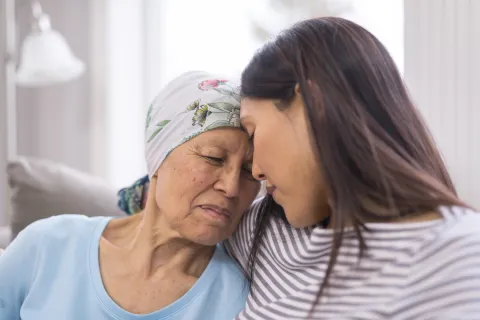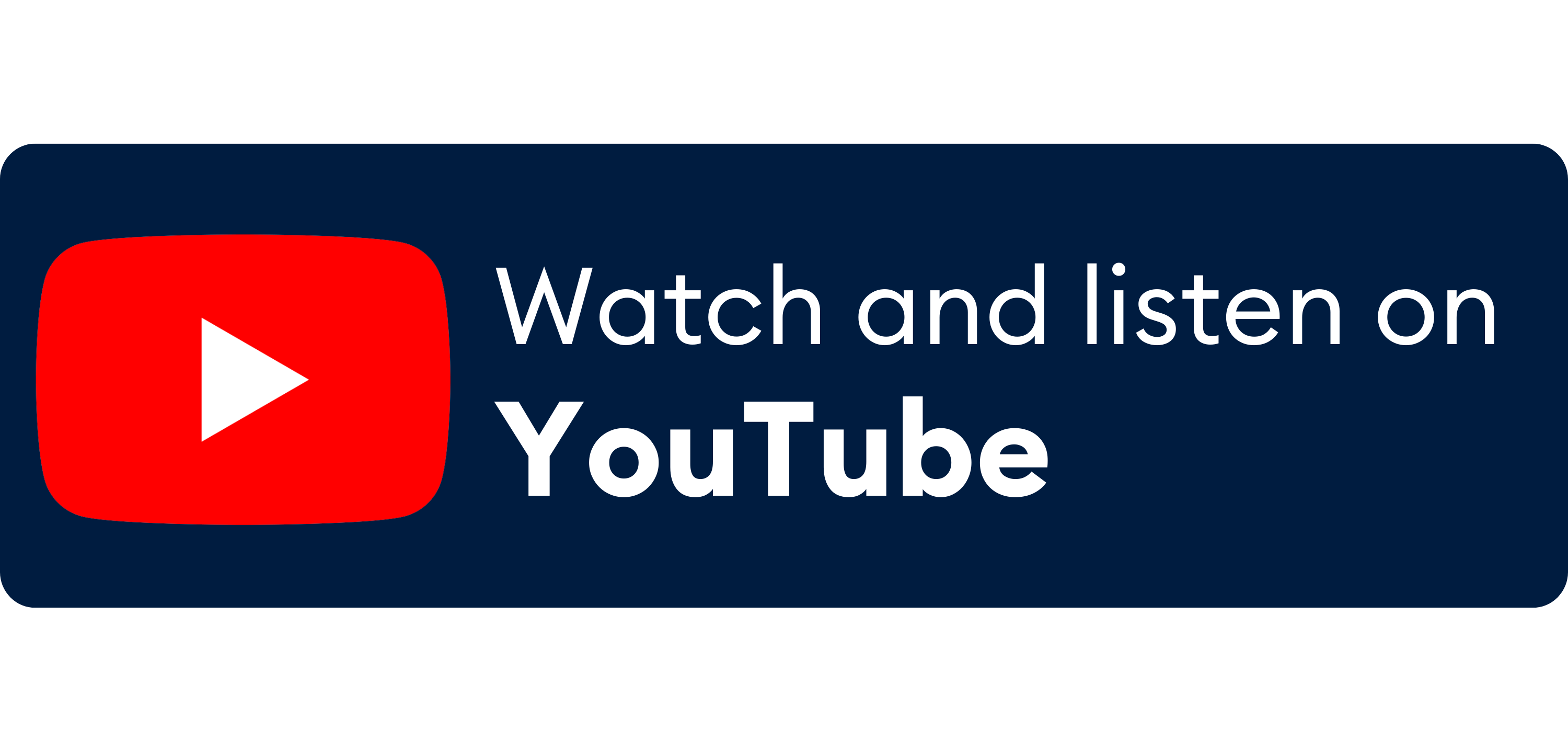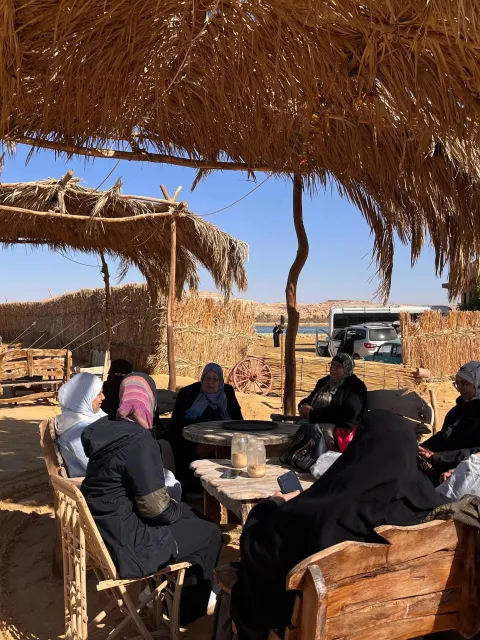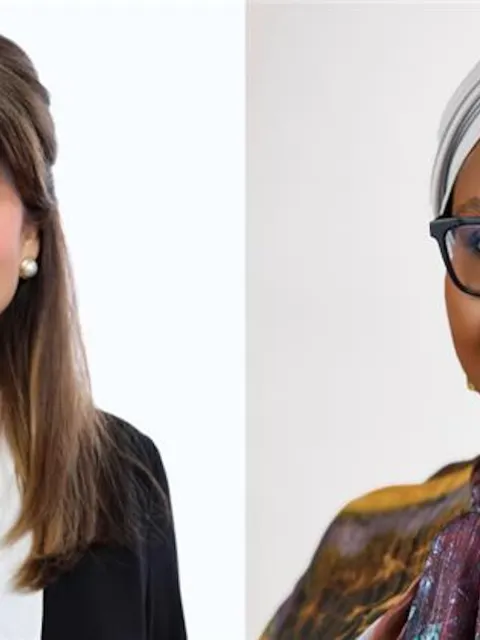Podcast "Let's Talk Cancer": Assisted suicide: dying with dignity? The debate in end-of-life care

In this podcast episode of Let's Talk Cancer, Samia Hurst, a physician bioethicist and Director at the University of Geneva, helps explain the different views around the topic of medically assisted dying.
If someone is in unbearable pain, terminally ill or suffering an incurable condition, should they legally be provided assistance to die if they wish to do so?
The age-old controversy around assisted suicide or medically assisted dying is complex and multi-faceted. It raises questions about individual self-determination, the distinction between physical and psychological suffering, and the commitment of medical professionals to “do no harm”.
Access for cancer patients to medically assisted dying is also cause for debate, particularly in the case where life-saving treatment exists but is unavailable – as is the case in many low-and lower-middle income countries. Should the patient be allowed to die or left to suffer?
See podcast transcript below
Listen on: Spotify | Stitcher | Apple Podcasts | Amazon Music | Audible | Deezer
Podcast Transcript
Cary Adams 0:02
Welcome to another edition of Let's Talk Cancer. My name is Cary Adams and I'm the CEO of the Union for International Cancer Control based here in Geneva, Switzerland. Medical aid in dying is a process by which a person who is terminally ill, or suffering an incurable condition takes a lethal drug to end their life at a predetermined time. This practice is legal in some countries under certain circumstances, including here in Switzerland, where I'm based, but illegal in many countries, and may even be considered murder, and punishable with imprisonment. Attitudes Towards the practice vary within the medical profession and beyond, as it raises a number of ethical considerations, including issues of autonomy, personal liberty, dignity, and the Hippocratic Oath with us today to help us understand exactly what the practice of medically assisted dying entails and what are some of the different views on the issue. Samia Hurst, a physician bioethicist, and director of the Institute of Ethics, history, humanities, and the Department of Health and Community Medicine at the University of Geneva. Welcome. And thank you very much for giving us your time today.
Samia Hurst 1:16
Thank you. It's a pleasure to be here.
Cary Adams 1:19
So from a clinical perspective, let's start with how does the procedure for medical aid in dying take place?
Samia Hurst 1:25
You're right to start with this question. There are different types of situations that can all be described as medical aid in dying in different countries. So the procedure you just described in the introduction most resembles what is called assisted suicide in Switzerland, where somebody gives a terminally ill patient or sometimes even someone who is not terminally ill the means to kill him or herself. So this is assisted suicide. This happens in some countries, mostly at home. It's not typically a procedure that happens in the hospital as a matter of fact, for a very long time, hospitals banned it from being being done within their walls to imagine a home setting a home death. For people who use this way of dying, it is sometimes a way of demedicalizing death, actually. Euthanasia is actively killing someone at their request, when they've made a persistent request and they were capable of decision making. That is more frequently done in a hospital setting. Although not always, very famously, in Holland, it's also sometimes done in a home setting. So the procedure will change depending on what kind of end of life decision we are talking about. One thing I should add is it should always start with a rather thorough assessment of how autonomous the decision is, is the person capable of decision making? Is she free to make her own choice? Or is she under pressures from others? And also of the clinical situation. Are there alternatives that could be preferable, and that haven't been explored, are the they acceptable to the patient and so on?
Cary Adams 3:04
And so in jurisdictions where the process is legal, and of course, I'm in Switzerland at the moment, so it is legal here, what are the conditions under which a person is legally entitled to medically assisted dying? What are those conditions?
Samia Hurst 3:21
So there are two different components of the assessment, one of which is much more controversial than the other. The first is, how autonomous is this person? Is she making a choice that is authentically hers? Or is it quote unquote, the disease speaking? Is she under a modified mindset because of the disease? Is she capable of decision making or not? And also, is she free to make a voluntary choice or are people pressuring her. That is not controversial, you need that. The other one is where a lot of the controversy has happened, because it's a question of what kind of suffering can be a motivation or justified motivation to use medical aid in dying. And here, in some places, you have to be terminally ill, which means that it has to be predictable that you will die soon, whether or not you use medical aid in dying. And this is often not really precisely quantified, whether it's hours, days, weeks, months, but it should be soon. And there are other places where that's not required. Switzerland is actually a place where that's not required, where if you have suffering that cannot be piloted in any other way, you don't actually have to be terminally ill in order to have a right to access suicide assistance. And then if you do accept that you don't have to be terminally ill. The question is also what sort of suffering. Does it change anything if it's physical or physical disease, if it's a mental disease, if you have, say, if you have social suffering or existential suffering, does that count, how does that work? And in Switzerland, we actually have case law that confirmed that suffering due to a mental disease had to be taken into consideration at the same level as suffering due to a physical disease, that it was discriminatory to approach the matter otherwise. But of course, if you have suffering due to a mental disease, and you are also incapable of decision making, then you will fail to fulfill the first condition and you will not have access to assisted suicide. The third point is also important because when you say entitled, in Switzerland, you are never entitled to suicide assistance, it is only allowed or not in your case. But if it is allowed, this is what is sometimes called the Liberty right, you don't have the right to obtain it. If you find someone who is willing to assist you then fine. But if you don't - tough. And in other places, that's not the case, there are places where medical aid in dying is considered part of healthcare. And so it becomes a matter of access to healthcare to have access to it.
Cary Adams 5:56
Perhaps I can ask a question which is a bit close to my life. My father died of Alzheimer's disease, some four years ago now. But the decline was, as with many people with Alzheimer's, it was over many years. And the point at which my father, one could honestly say he could make an informed decision about his death was some years before it was clear to my mother and myself and my sisters that he was living a life which was very, very poor. Particularly in the last few months, so that point of which the decision is, I think you said authentically, their decision is challenging when it comes to something like Alzheimer's where I think my mother at one point said that my father had really died twice, he died in his mind before he died in his body. And it was the timescale between the two was a long time. So how does that work, then? Is that a challenge?
Samia Hurst 7:02
These situations are so hard, so hard? And it's often described in the way you've just described it: that it's like dying several times. If the question is, how does that fit with the legal framework for suicide assistants in Switzerland? It doesn't, not really, because, in fact, you do have to be capable of decision making, not only when you make the choice, but when you act it out. The fundamental element of suicide assistance is that it has to be suicide, you can't ask for it in advance, you have to do the deed yourself. And you have to be lucid at the time of the act, because you have to be able to change your mind until the last minute, that is one of the conditions of free choice. And this means that you can't ask for it in an Advanced Directive, you can't say I want you to suicide me, quote, unquote, when I will have reached such and such a state, the current framework doesn't give an option for choosing death in that situation. Except it does, but in conditions that people don't want, which is to sort of jump to the gun and and commit suicide while you still have a quality of life that you would actually want to keep. Because if you wait for longer than that, you will lose decision making capacity, and the option will be off the table. And this is of course not an outcome that people want, right? You don't want to encourage people to die sooner. You want them to live as long, at least as long as they want to.
Cary Adams 8:28
Yes, and as we saw the pathway of Alzheimer's varies from one person to another. It can be months, it can be years, it could be on hold for a period of time. My father was lucid, and then he wasn't lucid. There was a challenging time, and I sympathize with people going through the same challenges.
Samia Hurst 8:46
Completely. And one of the important things is that when the person is lucid, one of the safeguards is to at least write an advance directive as to what is accepted or not accepted as far as saving your life goes later down the line. Because of course, withholding and withdrawing life sustaining treatments is allowed on the basis of an Advanced Directive. And that can be written while the person is lucid earlier on.
Cary Adams 9:09
It's been in the news recently, we had the death of the famous Swiss film director Jean Luc Goddard. What were the main arguments do you think for against the procedure that he actually went through?
Samia Hurst 9:21
On the controversies around suicide and assisted suicide or on voluntary death, there are questions related to autonomy. Is it the ultimate freedom of choice without which we have no other freedom if we do not belong to ourselves, if we are not allowed to choose our own end? That is one side of the controversy. On the other side, there are those who would argue that it is the end of autonomy to kill yourself. And so it is in contradiction, to want to argue based on autonomy, that you should be allowed to end your own life. And there is also a variant of this, which is that you can't be in your right mind if you choose to die. So it has to be a disease. And of course, there's a kernel of truth to that, because frequently people who wish to die do have a treatable condition that ought to be treated rather than accepting to help them. But it's not everyone. There are questions about how this works with views of the good life, is it compatible with a person's good to want to die at some point. It's something that might contribute to making life good, an idea that we have since antiquity, that it is the possibility of choosing death, that makes some forms of suffering bearable in life, and that can make our lives better. Something that's borne out by a piece of data much more recently, since in the United States where some states allow suicide assistance, it is practiced by writing a prescription which the patient then takes home, and they can do what they want with it. And many of them actually end up never filling the prescription. They keep it in their nightstand. And they are reassured by the fact that they have a way out, they don't necessarily need to take the way out once they know that they have it. The American Indian author, Atul Gawande has very convincingly written in his book, "Being mortal: medicine and what matters in the end" that in some circumstances, "it's not really choosing either to live or to die, but it's choosing how to die when every window closes. And I know that I will die soon, no matter what, there are different ways to leave this world, there are different scenarios for my death. And maybe what I'm choosing is not to die, but to die that way, rather than that other way." There are questions about whether we have a duty to ourselves to live life in a certain way. So a lot of dignity based arguments against suicide assistants are based on the idea that we have a duty to ourselves to live a human life a certain way, and that this way excludes the choice of ending our own lives. And, of course, this is a controversial argument, because others will say that: no, either we don't have any duties to ourselves, or these duties do not include the fact that we must stay alive no matter what. And then there are questions about our duties to others, do we have a duty to others to remain with them? Are we harming them? And is that a sufficient cause to stop us from making the choice of dying. And actually, in the past centuries, this was a very important argument, because people didn't use to be considered as we consider ourselves today as belonging to ourselves, we consider that we own ourselves, or at least nobody else owns us. But this wasn't always the case. In a situation where you have a monarchy and where people are the property of the monarch or the subjects of the monarch, suicide was considered to be a crime on par with theft. You were stealing your person from its rightful owner, and it was punished, it was punished by confiscation of your goods and by infamous burials, ways that show that it was considered a crime to kill yourself. Now, we no longer consider this to be a crime. And so this is actually the root of why suicide assistance has become legal in Switzerland, because when suicide was no longer a crime, suicide assistance could no longer be complicity in a crime. And so there was a huge debate about what to do with this act, which could no longer be simply thought of as complicity. And this is how we got the current legal framework where it is illegal to assist someone in suicide for selfish motives. But in the absence of selfish motives, there is no crime. And then there is the controversy around medical participation. Is it compatible with the ethos of medicine, if you ask physicians, the profession is very split on the matter. There are some people who view suicide assistants as completely incompatible with their duty to patients, others who view it as part of care if and and view refusal as a form of abandonment of someone in their direst need?
Cary Adams 13:53
Obviously, our interests, particularly as cancer, being the Union for International Cancer Control, our community around the world, are there any particular issues with respect to medical aid in dying for people with cancer that you're aware of?
Samia Hurst 14:05
I think there's a risk of a misunderstanding in certain forms of cancer where prognosis has been vastly improved by research over the last years, where people might choose to die mistakenly thinking that their lives are going to be short, when in fact, it's not necessarily going to be the case. That's perhaps not specific to cancer, but a characteristic of a situation where medicine has moved suddenly, and you're left with representations from the previous state of clinical care. And then there are situations that are not specific to cancer again, but the cancer tends to be the paradigm for thinking about these sorts of situations where there is a degree of predictability to the end of life, and having a degree of predictability to the end of life makes some things hard, of course, but it also makes some things relatively easier than in alternative scenarios for the end of life. The because if you know, roughly speaking, how much time you have, what kind of state of health you'll be in, you're able to plan with more predictability in your hands than in other such in other situations. And this could mean that you can have advanced care planning in a more informed way in a more participatory way that it is easier to find the right timing for it as well to say, what do I want? What do I not want? Now I want to write Advanced Directives name, a proxy... And the discussion around voluntary death can also happen within a more manageable timeline. Whereas if you are on a different path, the very, very slow path of dwindling capacities in Alzheimer's, for example, or the very acute recurrent situation that you might have, if you have cardiac disease, or chronic bronchitis, make this kind of discussion harder to place correctly, because you don't have the same predictability of what is going to happen. It's never complete, of course. But there are degrees in uncertainty and in some kinds of cancer, you have a lesser degree of uncertainty than other diseases that can take our lives.
Cary Adams 16:13
Yeah, the predictability seems to be the biggest challenge there. Because who knows whether it's going to be two weeks, two months or even longer. A real challenge for many people with cancer, of course, is that, whilst there may be ways in which they could be treated, potentially to survive the cancer they they have, that treatment is not available in that country. It's just not available. And that throws up a real challenge. Because if there is a way of treating an individual with a specific cancer, it may be, quote, terminal in one country, but not terminal in another.
Samia Hurst 16:49
That's true. And that is also part of the discussion around voluntary death. What does it mean that alternatives are available? Do they have to be available theoretically? Do they have to be available in practice? Do they have to be acceptable to the patient? That for sure, I mean, you can't be constrained to use an alternative that you don't consent to. But if an alternative would be in theory possible, but it's not in practice for you, that is a source of justified discomfort with assisted death. It matters that there could actually be something available, but you don't have access to it. On the other hand, it's not straightforward to say, well, assisted suicide or assisted death should be banned in those cases, because that just leaves you to suffer without having access to the alternative, any more than you would have, if voluntary death had been accessible to you. But that is a very thorny issue. And it is part of the arguments of people who oppose voluntary death, fundamentally, to say well, there should really be alternatives in every case, and we just need to make them available.
Cary Adams 17:50
It's a real challenge in the cancer world where many, many countries around the world don't have access to the basic essential medicines or the radiotherapy or the quality of surgery required. In fact, they lack the availability to opioids and things like that, which is the very basics. In the past, we've argued that in countries where there isn't the treatment capacity, at least, we should have palliative care and opioids available because those last few days, maybe a few weeks of cancer can be very painful.
Samia Hurst 18:22
This is completely fundamental. And an important aspect here is that of course, making voluntary death illegal should not serve as an excuse to not give access to any of this right? You can't quote unquote, buy yourself a good conscience by saying at least we've not allowed them to kill themselves and then leave people to suffer you. The crucial aspect here is to give access to both therapies and palliative care, if possible, and you're right at least to alleviate suffering. And it's not for nothing that many of these drugs are on the essential drug list of the WHO and should be a priority.
Cary Adams 18:59
We often hear the procedure for medically assisted dying referred to as assisted suicide. I know that for some people, that is not an appropriate form of words. What is the issues here? What what do you think the issues are?
Samia Hurst 19:12
I think it's rather easy to understand that if suicide is stigmatized, then suicide assistance will automatically be stigmatized as well. So perhaps we should put more effort into destigmatizing suicide and not viewing it as it was viewed in past centuries as a moral fault or a sign of weakness, but a symptom of disease and something that should bring us to compassion and not to judgment. But whatever words we choose to use, we have to have a way of distinguishing a situation where someone is given the means to kill themselves and kills themselves from a situation where we asked to be killed and are killed by someone else. In the end words are just words as long as we are clear on what we mean by them we can communicate using whatever words we want. But, but it is important not to conflate the situation of suicide assistance, the situation of voluntary euthanasia, and also perhaps the situation of withholding or withdrawing life sustaining interventions.
Cary Adams 20:18
Well, that's a great advice. I've got to say, that's been really, really interesting, Samia, I'm sure that everyone who's listened to this podcast may want to know more, reach out to you directly, or to the UICC. It's a subject which I think we've skipped around the edges of this subject for a number of years. And it's lovely to talk to someone who has so eloquently and in such an articulate way, explains what it's about. So I personally really appreciate you giving us your time and, and talking about this.
Samia Hurst 20:48
Thank you.
Cary Adams 20:50
If you've enjoyed this particular podcast on medical aid in dying for end-of-life patients, please seek out the other podcasts we've made recently, all of which are fascinating. On the issue of dying for end-of-life patients with cancer, there will be a session at the World Cancer Congress in October in Geneva, Switzerland. So if you are coming to the Congress, please seek it out. And if not look to have an online registration, and you can watch it online, at home or in your office.
Listen on: Spotify | Stitcher | Apple Podcasts | Amazon Music | Audible | Deezer
Last update
Friday 08 September 2023




